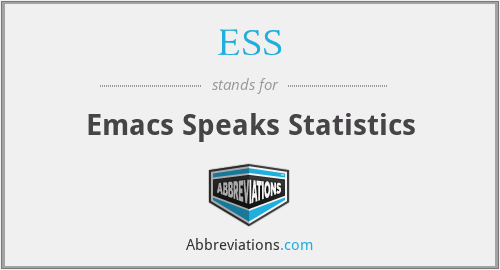We've got 15 shorthands for SPEAKS »
Acronyms that contain the term SPEAKS
What does SPEAKS mean? This page is about the various possible meanings of the acronym, abbreviation, shorthand or slang term: SPEAKS.
Filter by:
Sort by:PopularityAlphabeticallyCategory
| Term | Definition | Rating |
|---|---|---|
| ESS | Emacs Speaks Statistics | |
| WHCS | Where Hunter College Speaks | |
| ESS | EMACS Speaks Stat | |
| TSS | Terry Swartzberg Speaks | |
| JRS | Jack Rabbit Speaks | |
| MSV | Music Speaks Volumes | |
| YSH | Youth Speaks Hawaii | |
| BQS | Black Queen Speaks | |
| PSN | Perl speaks NONMEM | |
| OGS | Our Generation Speaks | |
| SSFH | She Speaks For Herself | |
| YWS | Young Water Speaks | |
| 77985 | Speaks, TX | |
| ASLTW | Action Speaks Louder Than Words | |
| FALSE | Feels, Acts, Looks, Speaks, Engages |
What does SPEAKS mean?
- speaks
- Speech is a human vocal communication using language. Each language uses phonetic combinations of vowel and consonant sounds that form the sound of its words (that is, all English words sound different from all French words, even if they are the same word, e.g., "role" or "hotel"), and using those words in their semantic character as words in the lexicon of a language according to the syntactic constraints that govern lexical words' function in a sentence. In speaking, speakers perform many different intentional speech acts, e.g., informing, declaring, asking, persuading, directing, and can use enunciation, intonation, degrees of loudness, tempo, and other non-representational or paralinguistic aspects of vocalization to convey meaning. In their speech, speakers also unintentionally communicate many aspects of their social position such as sex, age, place of origin (through accent), physical states (alertness and sleepiness, vigor or weakness, health or illness), psychological states (emotions or moods), physico-psychological states (sobriety or drunkenness, normal consciousness and trance states), education or experience, and the like. Although people ordinarily use speech in dealing with other persons (or animals), when people swear they do not always mean to communicate anything to anyone, and sometimes in expressing urgent emotions or desires they use speech as a quasi-magical cause, as when they encourage a player in a game to do or warn them not to do something. There are also many situations in which people engage in solitary speech. People talk to themselves sometimes in acts that are a development of what some psychologists (e.g., Lev Vygotsky) have maintained is the use of silent speech in an interior monologue to vivify and organize cognition, sometimes in the momentary adoption of a dual persona as self addressing self as though addressing another person. Solo speech can be used to memorize or to test one's memorization of things, and in prayer or in meditation (e.g., the use of a mantra). Researchers study many different aspects of speech: speech production and speech perception of the sounds used in a language, speech repetition, speech errors, the ability to map heard spoken words onto the vocalizations needed to recreate them, which plays a key role in children's enlargement of their vocabulary, and what different areas of the human brain, such as Broca's area and Wernicke's area, underlie speech. Speech is the subject of study for linguistics, cognitive science, communication studies, psychology, computer science, speech pathology, otolaryngology, and acoustics. Speech compares with written language, which may differ in its vocabulary, syntax, and phonetics from the spoken language, a situation called diglossia. The evolutionary origins of speech are unknown and subject to much debate and speculation. While animals also communicate using vocalizations, and trained apes such as Washoe and Kanzi can use simple sign language, no animals' vocalizations are articulated phonemically and syntactically, and do not constitute speech.
Still can't find the acronym definition you were looking for? Use our Power Search technology to look for more unique definitions from across the web!
Citation
Use the citation options below to add these abbreviations to your bibliography.
Style:MLAChicagoAPA
"SPEAKS." Abbreviations.com. STANDS4 LLC, 2024. Web. 26 Apr. 2024. <https://www.abbreviations.com/SPEAKS>.


Discuss these SPEAKS abbreviations with the community:
Report Comment
We're doing our best to make sure our content is useful, accurate and safe.
If by any chance you spot an inappropriate comment while navigating through our website please use this form to let us know, and we'll take care of it shortly.
Attachment
You need to be logged in to favorite.
Log In